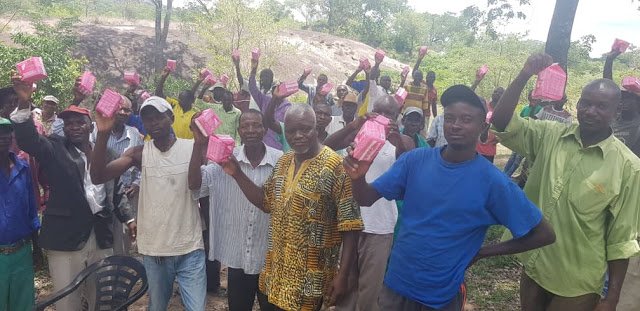Moses Ziyambi
The Zivhu Foundation Zimbabwe is
bringing into the country several hundred kilogrammes of female sanitary wear
as part of wider efforts to make the products more accessible to women from low
income backgrounds.
bringing into the country several hundred kilogrammes of female sanitary wear
as part of wider efforts to make the products more accessible to women from low
income backgrounds.
The sanitary pads, which come in
packets of 10, are manufactured at the Zivhu Foundation South Africa’s highly-mechanised
factory in Pretoria.
packets of 10, are manufactured at the Zivhu Foundation South Africa’s highly-mechanised
factory in Pretoria.
In an interview with TellZim
News, Zivhu Foundation director Killer Zivhu said the motive of the venture was
completely philanthropic, with the only financial concern being the
sustainability of operations.
News, Zivhu Foundation director Killer Zivhu said the motive of the venture was
completely philanthropic, with the only financial concern being the
sustainability of operations.
“We are responding to the
impossible-to-ignore calls to make access to sanitary wear a basic human right
for all woman and girls. Globally, women’s health issues are increasingly becoming
issues of human rights and we want to fit right into that narrative. Why should
our women and girls still suffer the indignities of period poverty?” said
Zivhu.
impossible-to-ignore calls to make access to sanitary wear a basic human right
for all woman and girls. Globally, women’s health issues are increasingly becoming
issues of human rights and we want to fit right into that narrative. Why should
our women and girls still suffer the indignities of period poverty?” said
Zivhu.
Zivhu, who is the Zanu PF Member
of Parliament (MP) for Chivi South, said the programme was also meant to create
marketing job opportunities for women who want to sell the products in their
communities.
of Parliament (MP) for Chivi South, said the programme was also meant to create
marketing job opportunities for women who want to sell the products in their
communities.
“We have set up a distribution
centre in Harare. Our products are selling for just $6 per packet of 10 and
that makes them the most affordable on the market. Women who want to be our
sales persons in communities must go and register. The money raised is ploughed
back into the business to make it sustainable,” said Zivhu.
centre in Harare. Our products are selling for just $6 per packet of 10 and
that makes them the most affordable on the market. Women who want to be our
sales persons in communities must go and register. The money raised is ploughed
back into the business to make it sustainable,” said Zivhu.
He also said the foundation was
also campaigning to raise sanitary hygiene awareness among males so that they
better appreciate the need to support women and girls in that regard.
also campaigning to raise sanitary hygiene awareness among males so that they
better appreciate the need to support women and girls in that regard.
Asked why the foundation had not
set up the manufacturing plant in Zimbabwe to help the cause of formal job
creation, Zivhu cited shortage of inputs.
set up the manufacturing plant in Zimbabwe to help the cause of formal job
creation, Zivhu cited shortage of inputs.
“It’s harder and much more
expensive to access the raw materials locally. So it’s generally about
operational costs which are not friendly to the philanthropic cause we want to
champion using this programme,” said Zivhu.
expensive to access the raw materials locally. So it’s generally about
operational costs which are not friendly to the philanthropic cause we want to
champion using this programme,” said Zivhu.
The foundation recently donated
some pads to some South African schools with majority Zimbabwean pupils .
some pads to some South African schools with majority Zimbabwean pupils .
The renowned philanthropist also
said the foundation was fully supportive of a recent government decision to
supply free sanitary pads to poor schools beginning in the rural areas.
said the foundation was fully supportive of a recent government decision to
supply free sanitary pads to poor schools beginning in the rural areas.

